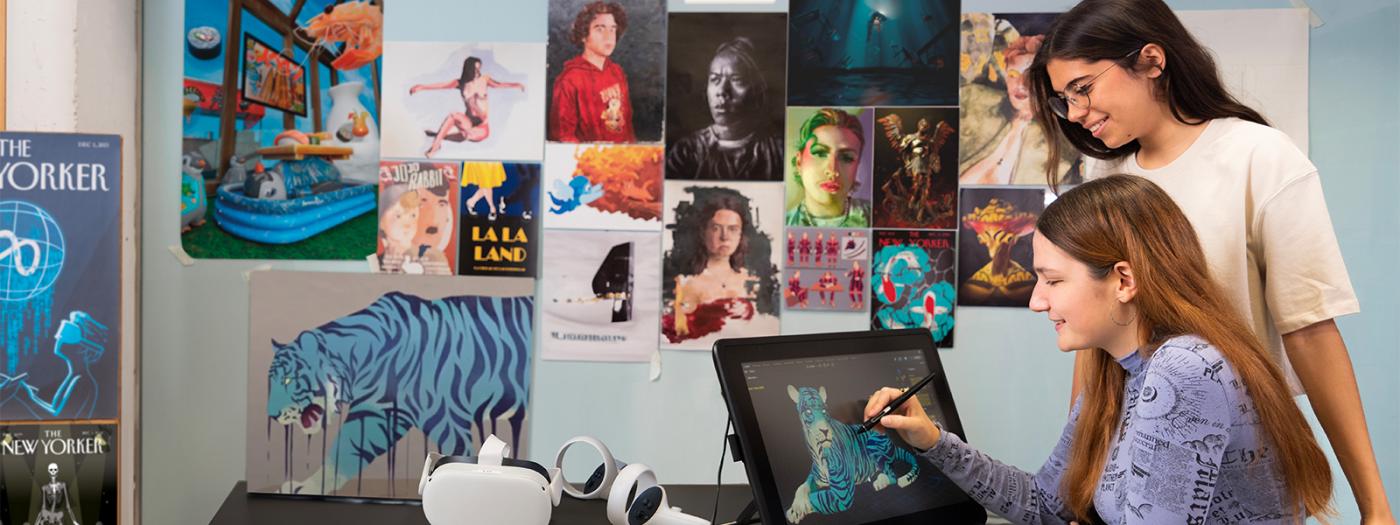General introduction and learning outcomes
The course establishes, in a first part, the theoretical knowledge that will allow the understanding of the social and
cultural reality of communication through the study of applied semiotics. The aspects inherent in the communication
process, verbal and non-verbal communication, will be studied to understand the interdisciplinarity of the
communicative phenomenon. The student will know the communication strategies in the transmission of images and
the characteristics of the different visual languages. As well as, the student will know and critically analyze the process
of meaning of cultural and artistic products, both textual and visual (photography, domestic or urban space, advertising,
cinema, newspaper, magazines, works of art, literature, etc.).
Titular Professors
Professors
Learning Outcomes of this subject are:
RA.92 The student knows the processes of creating a communication or creative company
Unit 1. Introduction to semiotics
Unit 2. Visual Communication
Unit 3. Proxemics
At the beginning of each unit, there will be introductory master classes to the different thematic blocks where the
teacher will introduce basic concepts of the topic. Next, the student will actively participate in the classroom through
various didactic activities based on the active teaching methodologies, listed below, with the aim that the student
acquires the knowledge on the semiotics of visual communication and knows how to apply it in their field. professional
in a critical and constructive way. The evaluation is continuous: at the end of each thematic block there will be an
evaluation consisting with of 04 practices, as well as attendance and participation in class.
MD1: Master Class with the support of audiovisual material
MD3: Flipped classroom
MD4: Real events
MD6: Peer Instruction
Ordinary call evaluation:
Practical Activities: 90%
Assessment of each practice at the end of each thematic block. All practical activities are highly meaningful.
Minimum note of each of the tests to make the average> 4/10. Group note.
Continuous assessment: 10%
Student participation in classes, delivery of exercises and teacher criteria. Moderately significant activities. Individual
note.
Exercises % Evaluation
Semiotic Analysis of film 30
Semiotic Analysis of Advertising 30
Semiotic Analysis of space 30
Participation and assistance 10
To pass the course the student must submit all 03 assessment exercises.
Late delivery will incur a penalty. The maximum grade will be 5.0.
Extraordinary evaluation:
The student who does not pass the ordinary evaluation has the option to pass the subject in the extraordinary
evaluation call.
Evaluation criteria for all calls:
In the event that the exams, exercises or work to be delivered by the student do not present a correct written,
grammatical and orthographic expression, the maximum grade will be a 3.
If the conditions to approve the call are not met, the maximum grade will be a 4.
The course will be failed if any of the two parts of the course is failed.
The grade will be reviewed on the day set by the teacher. In this review you can raise or lower the student's grade.
Barba, Laura Alejandra (2011) Conocimiento, arte y ciencia en Nelson Godman. Jornadas de Investigación en
Filosofía.
Barthes, Roland. (1964). Semiótica de la imagen publicitaria.
Barthes, Roland. (1957) Mitologías. Ed. Siglo XXI. México
Barthes, Roland (1986). ?Retórica de la imagen?. En: Lo obvio y lo obtuso. Barcelona: Paidós.
Barthes, Roland (1986). ?Análisis del mensaje fotográfico? En lo obvio y lo obtuso. Barcelona: Paidós.
Busquets, Luis (1977). Para leer la imagen: mass-media y educación.
David, Juan (2010). El espacio doméstico tras el soporte arquitectónico: claves para comprender el sentido
multidimensional de lo íntimo en el dominio del hogar.
Goodman, N. (1990) Palabras, trabajos, mundos. In: Maneras de hacer mundos. Madrid: Ed: Visor
Hall. Edward (1985) ?La proxémica? En: La nueva comunicación. (1984). Buenos Aires: Siglo XXI
Lapastora, Nuria. (2011). ¿Qué ves, cuando me ves? Y ¿cuándo no me ves? En: Actes. Agencia Feminista.
Losada, Flora (2001). El espacio vivido. Una aproximación semiótica.
Montenegro González, Catalina. (2019) Cartografías colectivas como espacios de reflexión visual: territorios,
experiencias y contextos. IV Congreso Internacional de INVESTIGACIÓN EN ARTES VISUALES ANIAV 2019.
http://dx.doi.org/10.4995/ANIAV.2019.9541
Núria Font-Casaseca (2020). Prácticas cartográficas para una geografía feminista: los mapas como
herramientas críticas. Documents d?Anàlisi Geogràfica, vol. 66/3, 565-589.
Serrano, S. (1984). La semiótica (Introducción a la teoría de los signos). Montesinos Editor, SA, Barcelona, 3
edición: Nov, p. 7-51).
Tordera, A. (1978). Hacia una semiótica pragmática (El signo en Ch. S. Peirce). Fernando Torres Editor,
Valencia 1978 (2 parte: cap.7,8,9 y 10, p.143-147).
